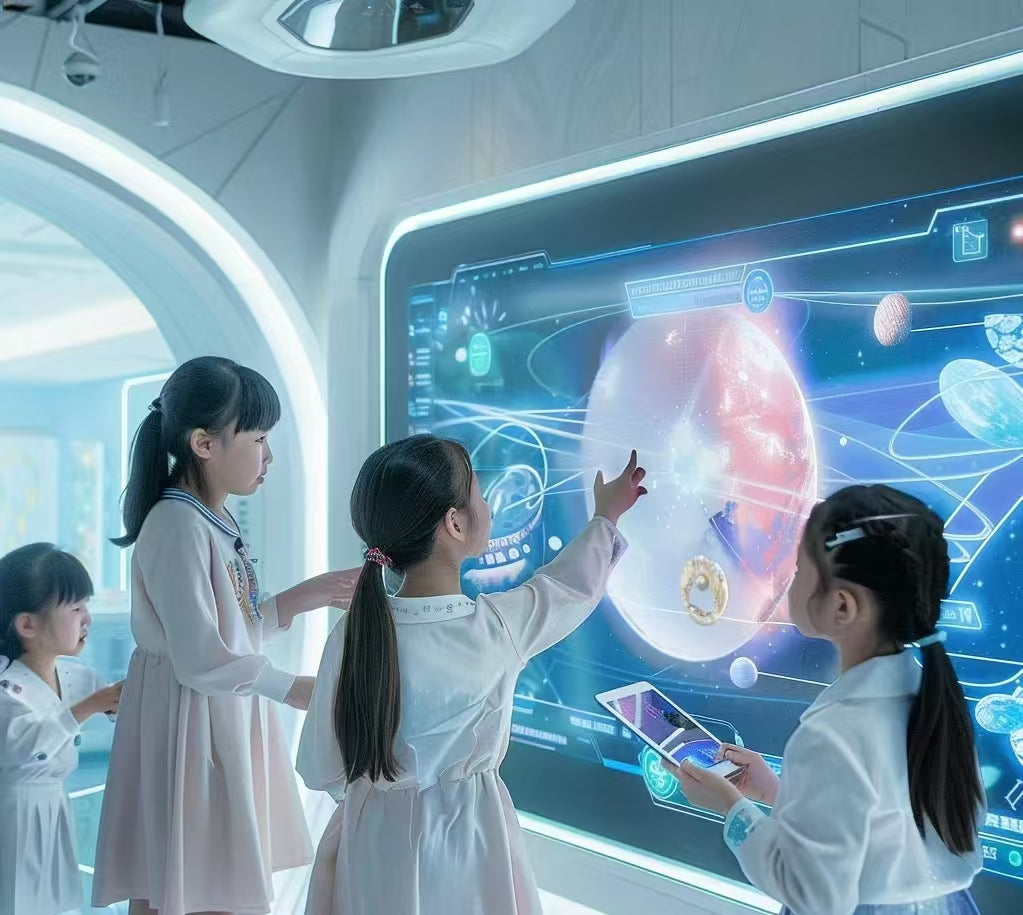With the rapid development of science and technology, artificial intelligence (AI) has penetrated into all aspects of our lives, and the field of education is no exception. The deep integration of artificial intelligence and education is gradually changing the traditional teaching methods and learning models, bringing unprecedented changes and innovations to education.
The application of artificial intelligence in the field of education is first reflected in personalized teaching. The traditional education model often adopts a "one-size-fits-all" teaching method, which is difficult to meet the learning needs of different students. Artificial intelligence can accurately grasp the learning progress, knowledge mastery and interests of each student through big data analysis and machine learning algorithms, so as to provide them with customized learning paths and resources. For example, some online education platforms use AI technology to recommend suitable courses and learning resources for students based on their learning behavior and grades. This personalized teaching method not only improves learning efficiency, but also stimulates students' interest and motivation in learning.
Secondly, the application of artificial intelligence in the field of education is also reflected in intelligent assisted teaching. Teachers can use artificial intelligence tools to prepare lessons, teach classes and provide after-school tutoring to reduce the teaching burden and improve the quality of teaching. For example, in the electronic information engineering courses offered in colleges and universities, teachers will use artificial intelligence teaching robots (such as XiaoR GEEK AI Lidar ROS Robot car, XR AI jetbot1.0 Robot Car, XR-F2 AI Self-driving Robot Car) to teach so that students can better and more intuitively understand the application of artificial intelligence. For another example, some intelligent lesson preparation systems can provide teachers with rich teaching resources and teaching suggestions based on the content of the textbooks and teaching objectives to help them better prepare for the course. During the teaching process, the intelligent teaching system can use voice recognition and natural language processing technology to achieve real-time interaction and feedback with students, making the class more lively and interesting. After class, the intelligent tutoring system can provide students with targeted exercises and answers based on their learning situation to help them consolidate their knowledge.
Furthermore, artificial intelligence also plays an important role in education evaluation and management. Traditional education evaluation methods often rely on paper-and-pencil tests and manual scoring, which are not only inefficient, but also difficult to ensure the accuracy and fairness of the evaluation. Some advanced evaluation systems can use image recognition and natural language processing technology to achieve automated testing and intelligent scoring, greatly improving the efficiency and accuracy of the evaluation. At the same time, artificial intelligence can also be applied to the field of education management to help schools achieve optimal allocation of teaching resources and real-time monitoring of teaching quality. For example, some schools use AI technology to analyze student grades and evaluate teaching quality in order to better understand students' learning situation and teachers' teaching effectiveness, so as to make targeted improvements.
However, the application of artificial intelligence in the field of education also faces some challenges and problems. For example, data privacy and security issues are a major hidden danger of artificial intelligence education applications. Students' personal information and learning data need to be strictly protected to prevent leakage or abuse. Some online education platforms must comply with relevant privacy policies and laws and regulations when collecting and using student data to ensure student data security. In addition, the popularization of artificial intelligence education applications also needs to consider educational equity issues. Differences in educational resources between different regions and schools may lead to uneven development of artificial intelligence education applications, thereby exacerbating educational inequality. Therefore, when promoting artificial intelligence education applications, it is necessary to pay attention to educational equity issues and promote the balanced development of artificial intelligence education applications through policy support and resource sharing.
In order to give full play to the potential of artificial intelligence in the field of education, we need to take a series of measures to address these challenges and problems. First, the government and education departments should strengthen the supervision and regulation of AI education applications, formulate relevant policies and standards, and ensure that students' data privacy and security are protected. Secondly, schools and educational institutions should actively introduce and cultivate AI education talents, improve teachers' information technology literacy and application capabilities, and enable them to better use AI technology for teaching and management. At the same time, we also need to pay attention to the issue of educational equity in AI education applications, and promote the balanced development of AI education applications in various places through policy support and resource sharing.
In summary, the deep integration of AI and education is reshaping the way of learning in the future. It not only provides possibilities for personalized teaching and intelligent assisted teaching, but also plays an important role in education evaluation and management. However, we should also be aware of the challenges and problems faced by AI education applications and take positive and effective measures to deal with them. Only in this way can we make full use of the potential of AI and promote continuous innovation and development in the field of education.
Deep integration of artificial intelligence and education: Reshaping the future learning method

